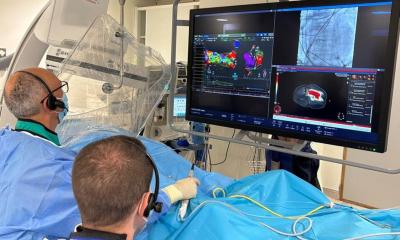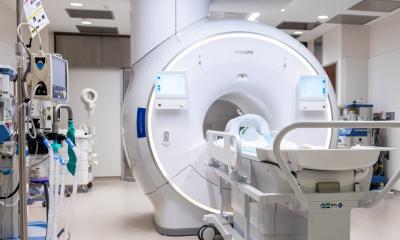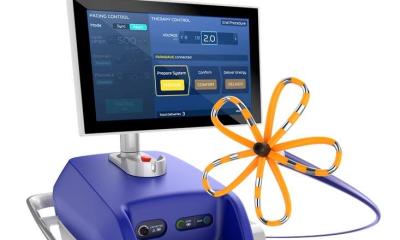The impact of laser technology on medicine
The construction of the first fully functional laser in 1960 was not just an important milestone in physics; it paved the way for numerous innovations in various medical applications. Recent technologic developments and the latest results from research and application in laser driven therapy, diagnostics, and production, were presented and discussed in the context of a workshop,
‘Laser technology for medicine’, organised by the networking association Forum MedTech Pharma and held in Nuremberg, Germany.
In addition to sophisticated laser applications in medical fields such as ophthalmology, ENT and urology, fascinating insights into the targeted manipulation of cells using laser radiation were discussed. Professor Holger Lubatschowski, of Rowiak GmbH, demonstrated how individual mitochondria can be de-activated, enabling a better understanding of cellular death mechanisms and how laser light can generate pores in cell membranes for inserting foreign DNA.
Dramatic improvements in resolution and the speed of laser induced imaging could become possible in the near future, utilising an entirely new laser type: the ‘Fourier domain mode-locking laser’. Dr Robert Huber, head of the respective working group at the LMU University in Munich, explained how an optical buffering inside a 7km fibre enables an ultrafast and broad-banded frequency tuning. Based on this laser type, superior imaging quality in near-surface tissue analysis of human skin or blood vessels is possible.
Completely different laser types with much higher output power are the basis for a production technology for implants called ‘selective laser melting’. Simon Hoeges, of the Fraunhofer Institute for Laser Technology, presented this innovative procedure, where complex devices are produced in layers by melting metallic powder using a laser beam. If the process can be further optimised, an on-site production of individual implants (e.g. hip or spinal prostheses) from the patient’s imaging data might become a one day procedure.
The eighty-five participants, from Germany, Austria, Switzerland and Spain, included almost all relevant manufacturers and research institutions attended the workshop, the organiser reports. ‘Intensive discussions during breaks and gatherings indicated that the participants were utilising the event not only for updating themselves on state-of-the-art technologies, but also for knowledge exchange and networking with respect to future cooperation.’
*Forum MedTech Pharma is a non-profit, registered society that provides a platform for business contacts and knowledge exchange, with the aim of promoting innovation and co-operation in the medical sector. The society has 600 members in 14 European and Asian countries as well as the USA. They include companies, research institutes, clinics, health insurers, regional authorities and other healthcare groups. Workshops cover an extensive agenda on the latest trends in medical technology and pharmaceuticals, e.g. biomaterials, diagnostics, clinical trials, minimal invasive medicine, health telematics and healthcare systems.
20.11.2008









